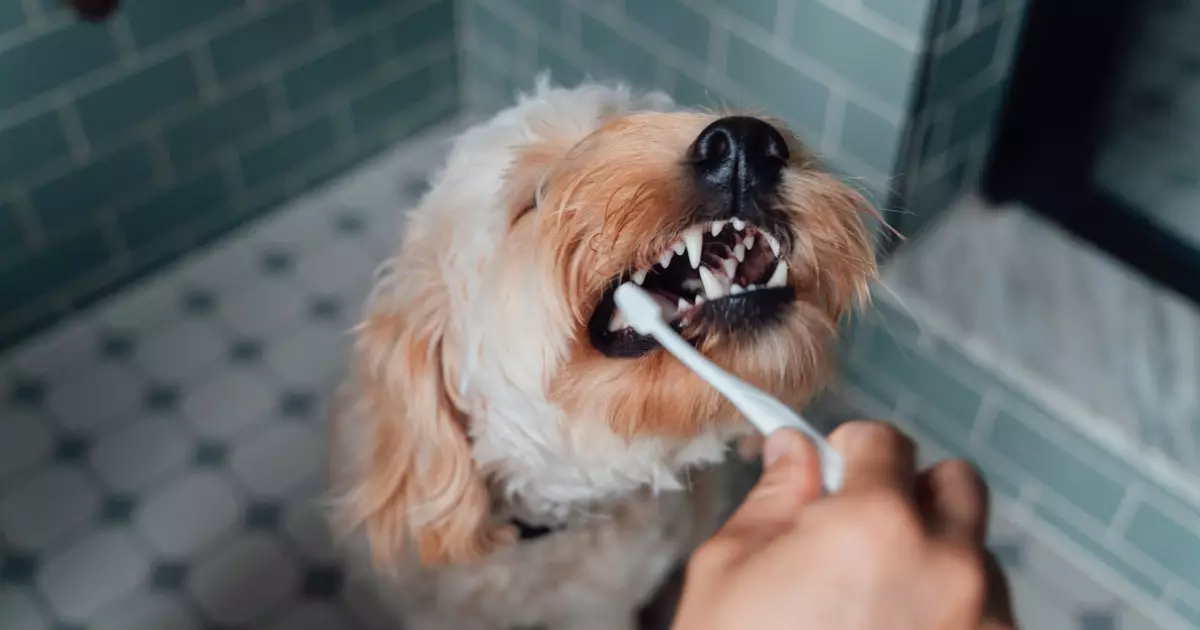Dogs are treasured members of our families, yet many pet owners overlook a critical aspect of their well-being—dental care. Despite overwhelming evidence showcasing the importance of oral hygiene for our furry friends, studies reveal that approximately two-thirds of pet owners neglect recommended dental care practices. This lack of attention can lead to severe health issues, as a staggering 80% of dogs will show signs of oral disease by their third birthday. Understanding the significance of dental health in dogs and the proper methods for upkeep is essential to ensure their long-term health and happiness.
The consequences of inadequate dental care can be severe, permeating various aspects of a dog’s overall health. Periodontal disease, one of the most common issues, has its roots in the bacteria that form plaque on the teeth. Initially, this plaque is relatively benign and could be eliminated through regular brushing or even chewing on hard toys. However, if plaque is allowed to harden, it transforms into tartar, which can only be effectively removed through professional cleaning.
As plaque continues to accumulate, signs of gingivitis may appear, including red, inflamed gums that are prone to bleeding. Ignoring these warning signals can result in aching infections around the roots of the teeth, leading to painful symptoms and potential loss of teeth as the condition progresses. The implications of these health challenges can reach as far as the heart, lungs, and kidneys, thus underscoring the necessity of maintaining your dog’s dental hygiene from the moment they enter your home.
Starting Early: Dental Care for Puppies
An essential part of maintaining your dog’s dental health is to start when they’re just a puppy. Early veterinary checkups can identify missing teeth, unusual swelling, or potential developmental problems in your new companion. Once your puppy transitions into adolescence, regular veterinary evaluations will become a crucial aspect of their health care.
During routine checkups, your veterinarian will assess any build-up of plaque and tartar and provide recommendations for necessary cleanings. While most dogs will undergo basic oral examinations during their annual visits, deeper cleaning procedures often necessitate sedation, especially if the dog is particularly anxious or uncooperative. Smaller breeds typically require cleanings starting around their first birthday, while larger breeds might wait until their second year.
A multi-faceted approach to your dog’s oral hygiene will ensure that they remain healthy. Before conducting an examination requiring anesthesia, a pre-anesthetic evaluation will be performed by your veterinarian. This assessment might involve tests such as blood work, X-rays, or electrocardiograms to guarantee your dog is in good health before the procedure.
Once under anesthesia, careful monitoring will take place to observe your dog’s vital signs, including respiration, temperature, and heart rate, to provide an additional layer of safety. Dental X-rays are another critical component, as they allow vets to identify underlying health issues that might not be visible through a typical examination.
The removal of tartar is akin to the professional cleanings humans receive, utilizing specialized tools to scale and polish the teeth. In some cases, your veterinarian might recommend applying protective barriers like fluoride treatments to reinforce teeth and inhibit future plaque formation.
While regular veterinary visits are vital, they are only part of maintaining your dog’s dental health. Pet owners must actively participate in at-home dental care regimens. Investing in canine-specific toothbrushes and toothpaste will facilitate at-home brushing. Getting your dog accustomed to this practice early can greatly enhance their comfort level.
In addition to brushing, providing dental chews or toys can support oral hygiene by helping remove food particles and reducing plaque build-up. Selecting treats formulated for dental health can also be beneficial. Combining these practices will significantly contribute to your dog’s overall health, potentially adding years to their life.
The Bottom Line: Emphasizing Dental Health
The onus is on dog owners to prioritize and ensure dental health is integrated into their pet’s routine care. Statistics suggest that adhering to a consistent dental care regimen can add up to five years to your pet’s life, illustrating the profound potential impact of oral hygiene. By being proactive and working closely with your veterinarian, you can cultivate a healthier lifestyle for your beloved dog. Engaging in open discussions with veterinary professionals about effective dental practices will ensure your pet remains not only happy but also healthy for years to come.

